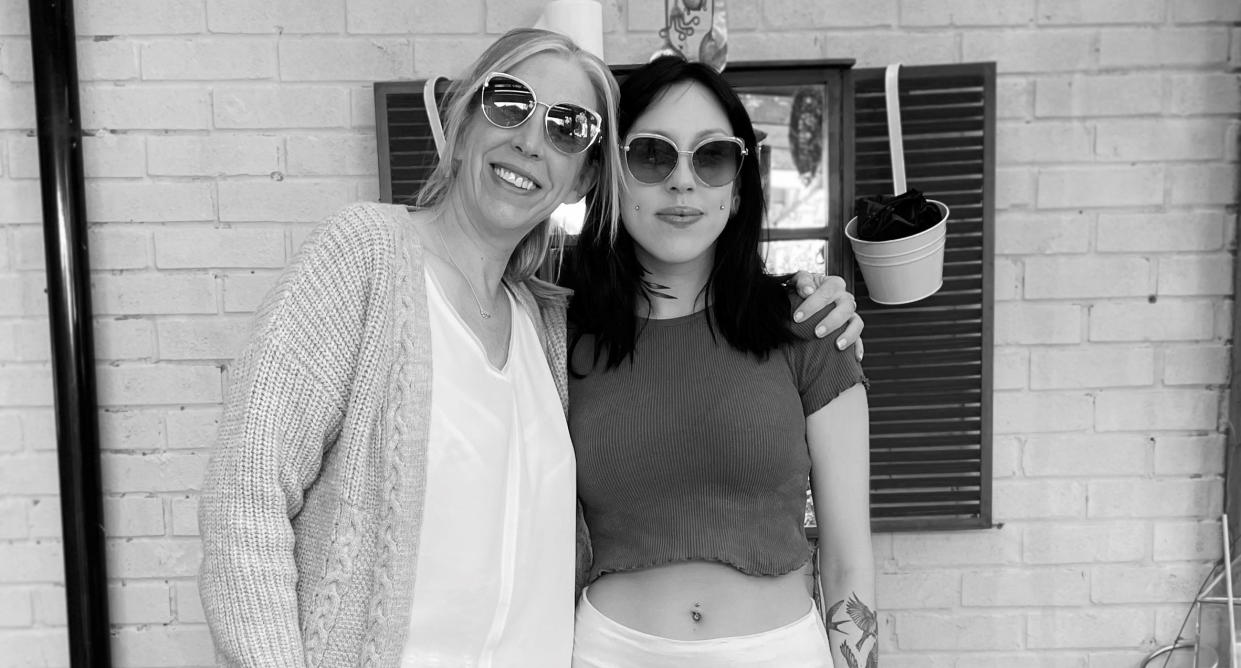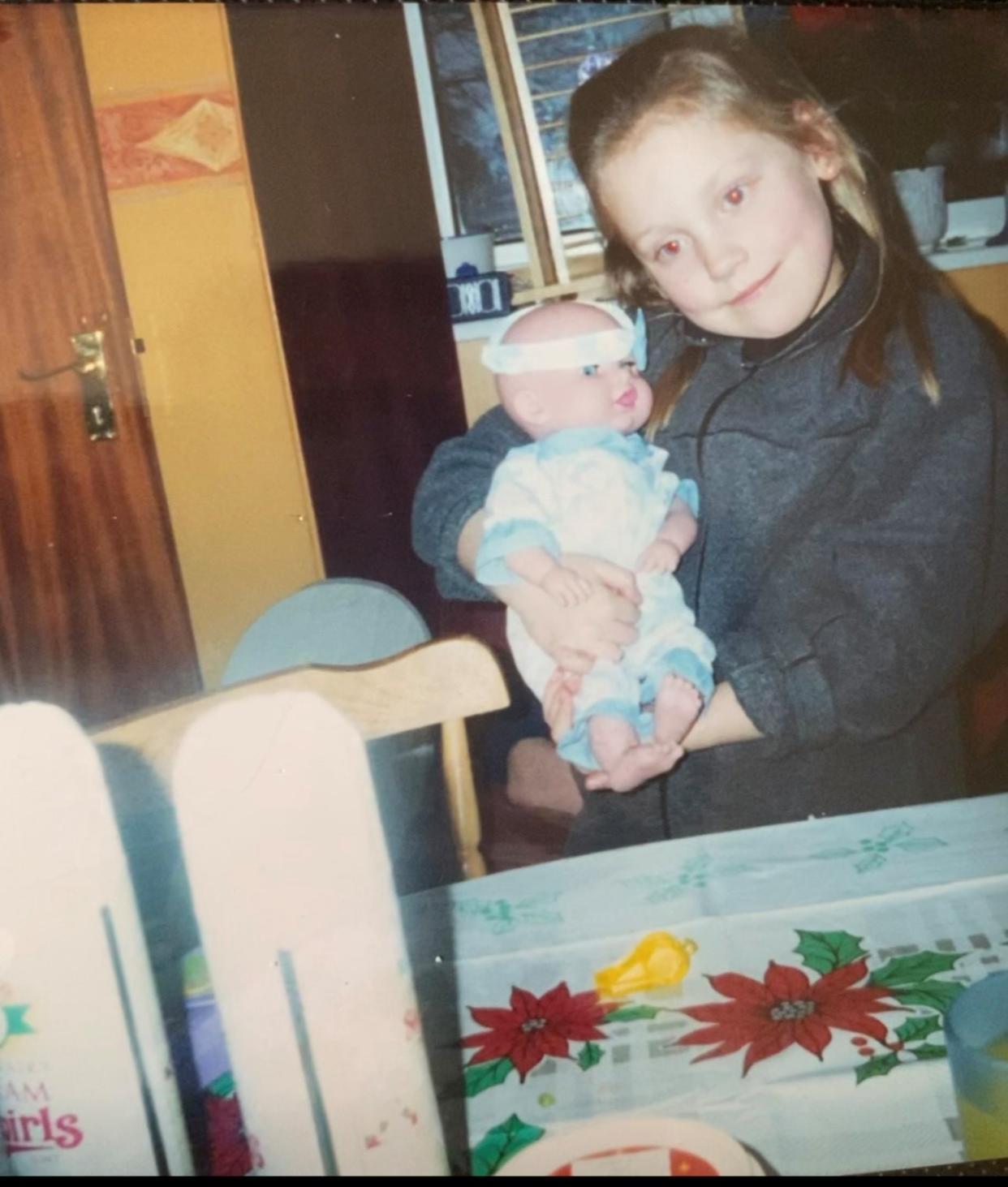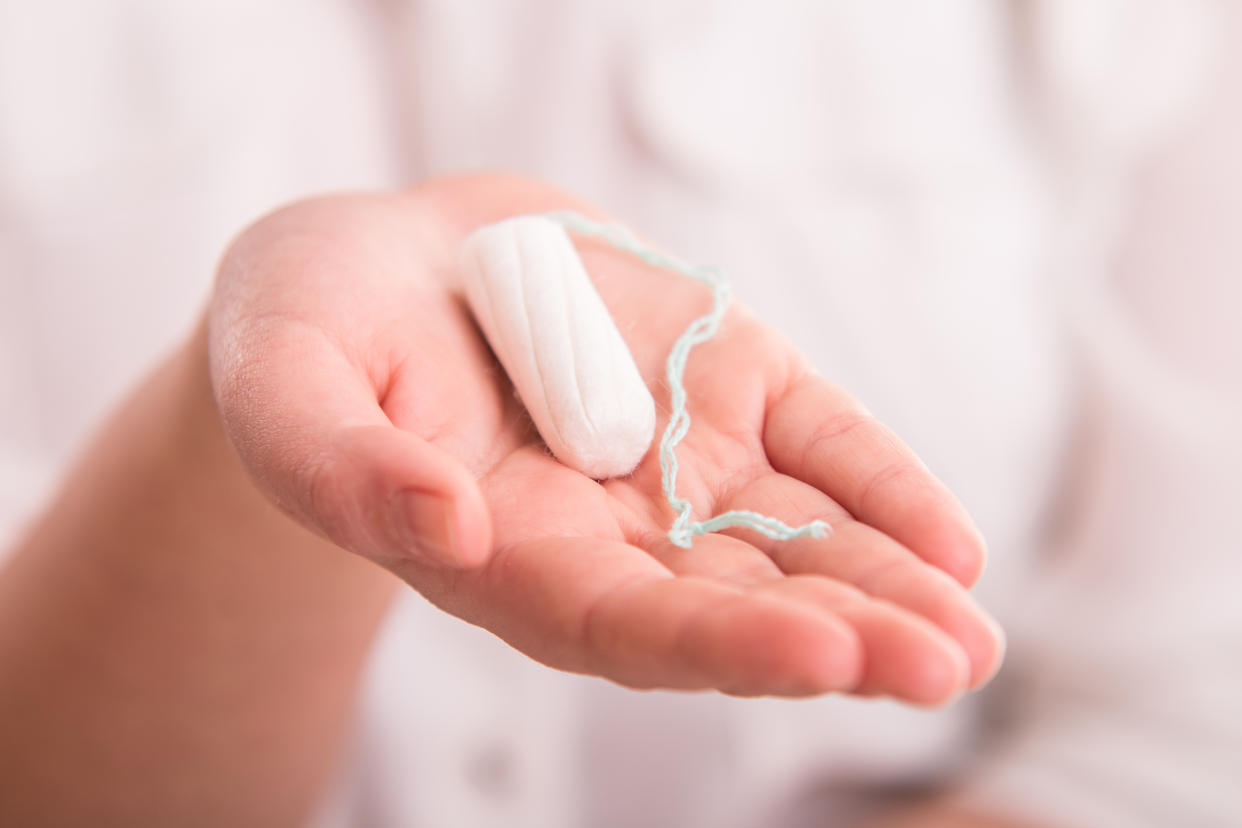Mum offers to donate womb to daughter so she can have a baby

A mum has offered to donate her womb to her daughter so that she can have a baby.
Dannielle Maydom, 28, was born with Mayer-Rokitansky-Küster-Hauser (MRKH) syndrome - a rare congenital disorder that affects the female reproductive system.
Her MRKH diagnosis means that Maydom was born without a uterus and doctors have told her that she would neve be able to have children.
Maydom first noticed that something may be amiss when she was 16 and hadn’t started her period.
"I just knew something wasn’t right," she explains. "It is one of the strangest, most unsettling feelings - knowing that there is a problem with your body, but not being able to pinpoint what it is."
After scheduling an appointment with a doctor just after her 18th birthday, Maydom was told that she didn’t have a womb.
Read more: UK’s first womb transplant a ‘massive success’ after sister’s donation (PA Media, 7-min read)

"After my diagnosis I didn’t leave my house for months," she says. "My dad, Stephen, was 39 when he passed away. I was 10 years old and I was his only child.
"The thought of me never being able to carry on his bloodline haunted me."
Now, Maydom’s mother, Erica Turner, 48, has said that she would donate her womb to her daughter so that she can have a child.
"I have five children and don't want anymore, being Dannielle's mother, hopefully I would be a good match for her," Turner, a carer, from Birkenstead, Hertfordshire, says.
"I would find it amazing if Dannielle had her own child through my womb. I know I would be an emotional wreck - knowing that she would be carrying her own child and I know the bond between myself, Dannielle and my grandchild would be extremely special."
Read more: UK's first successful womb transplant – key questions answered (The Conversation, 4-min read)
While Maydom is currently single, she does hope to be a mother one day. Her cousin, Jeanette, 39, has also offered to be her surrogate should the womb donation not pan out.
It comes after the UK’s first-ever womb transplant happened earlier this year at Oxford Churchill Hospital where a 40-year-old woman, who already had two children, decided to help her 34-year-old sister who was also born without a uterus.
"I was with my mum at home when I found out about the transplant, and we were so happy to hear about it," Maydom says.
What is Mayer-Rokitansky-Küster-Hauser (MRKH) syndrome?
Mayer-Rokitansky-Küster-Hauser (MRKH) syndrome is a rare condition that women are born with and affects their genital area. It affects around one in 5,000 women in the UK.

According to the NHS, it often means a woman has a shortened vagina, absent cervix and an absent or undeveloped uterus.
MRKH is classified into Type I and Type II. Type I includes the shortened vagina and absent cervix and womb, while Type II includes all of these aspects as well as urinary tract variations, kidney development issues and even hearing difficulties and bone changes.
Around 40% of women with MRKH have Type II.
Read more: Womb transplants for trans women ‘many years off’ – UK surgeon (PA Media, 3-min read)
Signs of MRKH syndrome
Women with MRKH usually discover it during puberty. They will develop breasts and pubic hair but will not have periods. The lack of periods is the main symptom.
MRKH syndrome treatment
If you suspect you may have MRKH and want to have an official diagnosis, visit your GP who can then refer you to a gynaecologist.
Tests will generally involve a blood test, ultrasounds and sometimes an MRI test too.
MRKH cannot be treated, but a womb transplant could be an option.
Watch:UK's first-ever womb transplant hailed by doctors as 'dawn of new era' in fertility treatment
Additional reporting SWNS.


